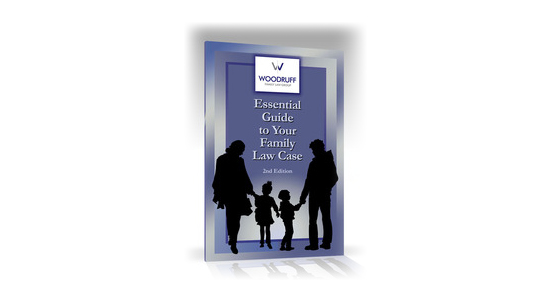Unmasking Today’s Divorce Taxation Problems Part 4
12. Welwood v. Comm’r, T.C. Memo. 2019‑113, 2019 WL 4187568 (2019)
(a) Facts: Husband and wife were married in 1973. They separated in Florida 2003 and signed an agreement dividing their property.
In the agreement, the husband conveyed to the wife a 50% interest in certain real estate partnerships. The partnerships were designed to generate tax savings in early years. A 1986 tax law change limiting the deduction of passive losses against other income made the partnerships much less attractive in their later years.
In 2010, the husband suffered a series of strokes that left him significantly disabled. He lived in series of care facilities until his death in 2017. The parties never divorced.
The parties filed accurate joint tax returns from 2008 until 2015, but they paid only the tax due in 2009; significant amounts remained outstanding for the other years.
In 2015, the parties signed another marital property agreement transferring the real estate partnerships back to the husband.
The IRS initiated collection proceedings on the unpaid taxes, and the wife filed a petition for discretionary innocent spouse relief. The wife claimed abuse, but the IRS did not believe her. “The [wife] claimed abuse, but she also described the [husband] as not having the cognitive ability to peel an orange.” 2019 WL 4187568, at *8. The IRS denied relief, and the wife sought review in the Tax Court.
(b) Issue: Was the wife entitled to discretionary innocent spouse relief?
(c) Answer to Issue: No.
(d) Summary of Rationale: The IRS argued that one of the threshold conditions was not met because the 2015 transfer of the real estate partnerships back to the husband was fraudulent. The court disagreed and found that the threshold requirements were met. “We see no intent to hide the transfers in this case or other indicia of fraud.” Id. at *15.
The first safe harbor condition requires that the parties be divorced or legally separated. The wife argued that the parties had been separated for well over a year, so this requirement was functionally met. The court suggested that the requirement might not be met. “Petitioner’s actions in taking care of her husband (despite alleged abuse over the years), paying household bills, and bearing the financial burdens of his care suggest that she regarded herself as a member of the same household and married to him until he died.” Id. at *16-17. Also, as discussed below, the wife had reason to know that the taxes would not be paid. The safe harbor conditions were therefore not met.
The result therefore turned upon the discretionary relief factors. The court agreed with the IRS that the wife’s assessment of her own financial condition was questionable and that her expenses exceeded her income by less than $300. She was therefore not facing economic hardship.
Further, the wife had reason to know that the husband would not pay the taxes due. The wife argued that this knowledge was irrelevant because she had been abused, but the court found her claim not credible even as to tax years before the husband’s stroke:
[The wife] testified that she was fearful because her husband had guns, but the only incident she specifically described occurred in 2015 or 2016 while he was in a nursing and rehabilitative care facility. During the incident M. Welwood stated that he wanted a gun in order to commit suicide. There is no evidence that he threatened petitioner with a gun or that he had access to a gun at the time.
Id. at *21-22.
Finally, the wife knew that partnerships generated substantial tax liability because she ultimately transferred them away in 2015. She made no attempt to pay any of the tax liability even though assets existed from which the liability could have been paid.
“Although petitioner’s situation is difficult and unfortunate, the circumstances are not compelling and do not justify relief from the joint liabilities.” Id. at *23-24.
Observations:
- Welwood is another case where the abuse factor was misused. Given the husband’s medical condition after he had his strokes, and especially the fact that he was in care facilities, it is highly doubtful that he could have abused the wife. Even before the strokes, the fact that the husband owned guns and that the wife was afraid of guns does not show abuse. There was zero evidence that the husband took any concrete action to intimidate the wife.
- The wife managed the parties’ finances after 2010, so she had every reason to know the parties’ financial condition. She discussed financial matters with advisors and ultimately conveyed away the real estate partnerships that were responsible for most of the taxes. The wife was not the sort of financially unaware spouse who tends to obtain innocent spouse relief.
13. Rogers v. Comm’r, 908 F.3d 1094 (7th Cir. 2018)
(a) Facts: Husband and wife filed a joint tax return for 2004. The IRS assessed a deficiency, and the parties sought review in the Tax Court. The Tax Court held for the IRS.
Three years later, the wife filed a petition for innocent spouse relief. The IRS rejected that petition. The wife sought review in the Tax Court, which agreed with the IRS. The wife appealed to the Seventh Circuit.
(b) Issue: Was the wife entitled to innocent spouse relief?
(c) Answer to Issue: No.
(d) Summary of Rationale: “[I]f a decision of a court in any prior proceeding for the same taxable year has become final, such decision shall be conclusive except with respect to the qualification of the individual for [innocent spouse] relief which was not an issue in such proceeding. The exception contained in the preceding sentence shall not apply if the court determines that the individual participated meaningfully in such prior proceeding.” I.R.C. ‘ 6015(g)(2).
The above language is full of confusing double negatives, but the bottom-line rule is that when married taxpayers contest a deficiency, and both spouses “participated meaningfully” in the proceeding, the proceeding bars a later petition for innocent spouse relief. It is expected that any claim for innocent spouse relief would have been asserted in the initial proceeding.
The Tax Court held that the wife participated meaningfully in the proceedings to question the deficiency and therefore could not file an independent petition for relief. In particular, the wife had an MBA and a law degree and substantial knowledge of tax law, yet she claimed complete ignorance of tax matters. The wife also had counsel in the previous tax proceedings. The Tax Court found her testimony not credible, and the Seventh Circuit agreed.
The wife argued that the result should be different because the IRS failed to inform her of her right to innocent spouse relief. “[The wife] has identified no authority that a disclosure shortcoming precluded the Service from taking the position that she was not entitled to innocent spouse relief.” 908 F.3d at 1097.
Lesson: When contesting a deficiency in the Tax Court, it is prudent to seek innocent spouse relief at that time. A later petition for such relief will not be available if the petitioning spouse “participated meaningfully” in contesting the deficiency.
There will obviously be cases in which the spouse seeking relief did not participate at all in questioning the deficiency. But the prudent step, in doubtful cases, is to seek innocent spouse relief at the earliest opportunity.
Observation: It is difficult for a person with a law degree and an MBA to obtain innocent spouse relief.
14. Asad v. Comm’r, T.C. Memo. 2017‑80, 2017 WL 2211215 (2017), aff’d, 751 F. App’x 339 (3d Cir. 2018)
(a) Facts: A husband and wife owned rental properties. Each spouse was responsible for some of the properties. They filed joint tax returns in which they claimed losses on the properties.
The IRS disallowed these losses and assessed a deficiency. The deficiency was asserted after the passage of the three-year statute of limitations in I.R.C. § 6501(a). Neither party contested the notice of deficiency within the 90-day period set forth in I.R.C. § 6213(a).
After the 90-day period, both parties petitioned for innocent spouse relief, and their respective requests were consolidated into one case. After the joint returns were filed, but before the Tax Court proceedings, the parties divorced. In their separation agreement, they agreed to divide all tax liabilities equally.
The IRS conceded that each spouse was entitled to relief from underpayment of tax on properties managed by the other. But the parties wanted to divide unpaid losses equally, as required by their separation agreement.
(b) Issues: (1) Could the parties raise a limitations defense to the notice of deficiency? (2) Should the tax liabilities be divided equally?
(c) Answer to Issues: No on both issues.
(d) Summary of Rationale (District Court): The statute of limitations was an affirmative defense, which could have been raised only within the 90-day statutory period for challenging a notice of deficiency. By failing to question the notice within 90 days, the parties waived their limitations defense.
“The divorce agreement establishes Asad’s and Akel’s rights against each other under state law…. However, it does not control their liabilities to the IRS.” 2017 WL 2211215, at *2.
(d) Summary of Rationale (Circuit Court): The appeal focused primarily upon the first issue. Because the parties missed the 90-day deadline, “the Tax Court properly determined that it lacked jurisdiction to consider the validity of the merits of any of Asad’s challenges to the underlying federal tax liability assessment, and that it was limited to determining whether Asad was eligible for innocent spouse relief.” 751 F. App’x at 341-42.
Lessons:
1. The IRS should pay more attention to the three-year statute of limitations on assessing deficiencies.
Observations:
- Asad only determined who pays the IRS. If the parties want to divide the tax liability equally, they are still free to ask the divorce court to enforce their agreement and order that result or even to reach that result through payments between themselves without involving any judge at all.
- Asad creates a certain amount of judicial inefficiency, because there will have to be an extra action in state court to enforce the agreement. But federal judges do not handle domestic relations cases very often, they lack interest in family law, and sometimes they are not very good at applying it. Also, in many cases, the state law issues will be heard by the same state judge who approved the agreement or issued the divorce decree. There are powerful advantages to letting state judges decide state domestic relations law issues.
15. Benson v. Comm’r, T.C. Memo. 2018‑157, 2018 WL 4520083 (2018), aff’d, 774 F. App’x 339 (8th Cir. 2019)
(a) Facts: Wife owned a corporation that maintained and collected revenue from St. Louis parking meters. She fraudulently overbilled the city, was convicted, and went to prison. While she was in prison, the husband filed to divorce her.
On their 2011 joint tax return, the husband and the wife correctly reported their incomes. But they did not pay the entire $69,513 tax liability.
The husband petitioned for innocent spouse relief. The IRS denied the petition, and the husband appealed to the Tax Court.
(b) Issue: Was the husband entitled to innocent spouse relief?
(c) Answer to Issue: No.
(d) Summary of Rationale: Mandatory innocent spouse relief is available only for tax understatements. Here, the problem was not understatement but, rather, lack of payment.
The IRS agreed that the threshold conditions were met. The husband had an annual income of $140,000, which was sufficient to make payments on the tax liability, so he would not suffer hardship by paying the taxes, and the safe harbor conditions were not met.
The result therefore depended upon the discretionary relief factors. Only one factor favored relief –the parties were separated when the husband requested relief. By contrast, three factors opposed relief: (1) the husband benefitted from the unpaid tax liability because his financial status was intertwined with the wife’s; and (2) the husband was aware that the wife could not pay the taxes (because her conviction resulted in a total loss of income); and (3) the husband had not timely paid his 2013 and 2014 taxes. Because the balance of factors was negative, the court refused to grant the husband innocent spouse relief.
In an unpublished opinion, the Eighth Circuit summarily affirmed the Tax Court’s decision.
Observation: The husband did not know of the wife’s fraud, but he appears to have shared in spending the proceeds. Also, he could repay the debt of $69,513 (presumably plus interest) from his annual income of $140,000. Finally, it never helps when a claimant seeking innocent spouse relief has failed to pay taxes on time in later years.
16. Schorse v. Comm’r, T.C. Memo. 2018‑176, 2018 WL 5270556 (2018)
(a) Facts: Husband was a computer programmer and wife was a physician. During the marriage, the wife earned 80% to 90% of the parties’ income.
For tax years 2002, 2003, and 2004, the wife provided her tax information to the husband, and his business accountant prepared joint tax returns. The wife’s tax information claimed that her practice suffered losses each year. The husband asked the wife and her accountant about the losses, and he was told that the wife did not have a sufficient basis in the medical practice to deduct the losses.
Nevertheless, the husband told his accountant to prepare returns that claimed loss deductions. Predictably, the IRS disallowed the deductions and assessed deficiencies. The couple paid these deficiencies for several years, paying off their tax debt for 2002.
The parties separated in 2012 and divorced in 2014. The divorce decree assigned all outstanding tax liabilities to the wife.
The husband filed a petition for innocent spouse relief from the 2003 and 2004 liabilities. The IRS denied the petition, and the husband sought review in the Tax Court.
(b) Issue: Was the husband entitled to innocent spouse relief?
(c) Answer to Issue: No.
(d) Summary of Rationale: To obtain mandatory innocent spouse relief, the claiming spouse must prove that he or she had no reason to know of a tax understatement. The husband here had reason to know, because the wife and her accountant told him, that the losses of the wife’s practice were not tax deductible.
The IRS agreed that the husband had not met the threshold conditions for innocent spouse relief. The husband had reason to know of the tax understatement, so the safe harbor conditions were not met. The result therefore turned upon the discretionary relief factors.
Factors favoring relief were (1) the husband had been divorced from the wife; (2) the divorce decree assigned all outstanding tax liabilities to the wife; and (3) the husband was current on taxes from later years. Factors opposing relief were (1) the husband had reason to know of the tax understatement; (2) the parties had a high standard of living; and (3) the husband therefore benefitted from the tax underpayment.
“Although many of the factors for equitable relief either favor petitioner or are neutral, petitioner’s actual knowledge of the losses deducted on the joint returns, his involvement in preparing those returns, and the significant benefit he received from the understatements weigh too heavily against him to allow relief.” 2018 WL 5270556, at *22-23.
Obvious Lessons:
- If your wife’s accountant tells you that the wife’s business losses cannot be deducted on your tax return, you should probably consider taking the accountant’s advice.
- It is hard to get innocent spouse relief when the tax problem is a deduction you instructed your accountant to take against the direct contrary advice of both your wife and her accountant.
17. Henry v. Comm’r, T.C. Memo. 2019‑24, 2019 WL 1385242 (2019)
(a) Facts: Husband and wife married in 1997 and divorced in 2013. While the divorce case was pending, the parties filed a joint income tax return for tax year 2012. The return did not report $14,650 in income earned by the husband from his second job as a church musician.
The IRS assessed a deficiency, which neither party contested. The IRS then seized funds from the wife’s 2014 tax return to satisfy the deficiency. The wife moved for innocent spouse relief. The IRS granted relief but denied the wife a refund. The wife sought review in the Tax Court.
(b) Issue: Was the wife entitled to innocent spouse relief?
(c) Answer to Issue: Yes.
(d) Summary of Rationale: The court construed the wife’s request for a refund as a request for discretionary innocent spouse relief. The IRS conceded that the wife was entitled to such relief, but the husband intervened and opposed relief.
The husband did not contest that the threshold conditions were met. Because the wife had reason to know of the tax understatement and there was no evidence of abuse, the safe harbor conditions were not met.
The result therefore turned upon the discretionary relief factors.
Factors favoring relief were (1) the parties had been divorced; (2) the wife’s only monthly income was $500 in alimony and $999 on Social Security disability, so she faced economic hardship; (3) the wife did not benefit from the unreported income, which husband spent for his own purposes; (4) the wife had complied with tax law in future years; and (5) the wife’s health was poor. Only one factor opposed relief –the wife argued in the divorce case only two weeks after the filing of the return that the husband had omitted his church income from a financial statement and that she knew he had had church income the year before, which suggested that she had reason to know of the omitted church income. Because the strong preponderance of the factors was favorable, the court granted discretionary spouse relief.
« Unmasking Today’s Divorce Taxation Problems Part 3 | Appendix Part 1 »









